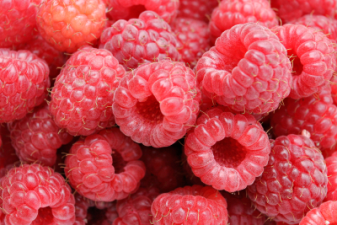The Organic/Gourmet Conundrum 9/2/2015
Certainly two of the biggest trends in food today are the desire to eat healthy – whether that is organic, or natural, or low fat or gluten free – and the desire to eat high quality food, ranging from the perfect piece of fish to gourmet seasonings. The interesting thing about these two trends is that while they are certainly related, they are, in fact, very different.
I was struck by this the other day when I was shopping for raspberries. I had to choose between a national brand of organic raspberries, flown in from California, and guaranteed to be pesticide free, or raspberries grown about three miles from me by Hank Dykeman, a local farmer, who grows raspberries that are local, artisanal, hand-picked and occasionally sprayed with pesticides.
The larger meaning is that, generally, I am in the gourmet market, but not really in the organic market. What drives my decision making process is taste. What I want to buy is the best tasting product I can find, not necessarily the purest product I can find. And by the way, other people are the opposite from me. They are driven by the need to find organic or natural products, because they especially value those attributes, so they use that as their primary sorting approach.
What gets interesting, and confusing, is that we tend to use one attribute as a proxy for the other. While I don’t search for organic or natural, I will make the assumption that if I have two choices – one organic and the other not – that the organic one is tastier. And similarly, folks who are looking for organic might use local or artisanal or handmade as proxy attributes for organic or natural.
And that is really the point. People who want organic or natural are looking for those specific attributes, but they may use other descriptors as proxies, and the people who want taste are may do the same thing for the opposite reasons. Which means that while the consumer looking for great taste is different from the one looking for a purer process, they may end up buying similar things.


David Diamond is president of David Diamond Associates, a consultant to retailers, manufacturers and service providers to the food and CPG industries.He can be reached at (646) 742-1373